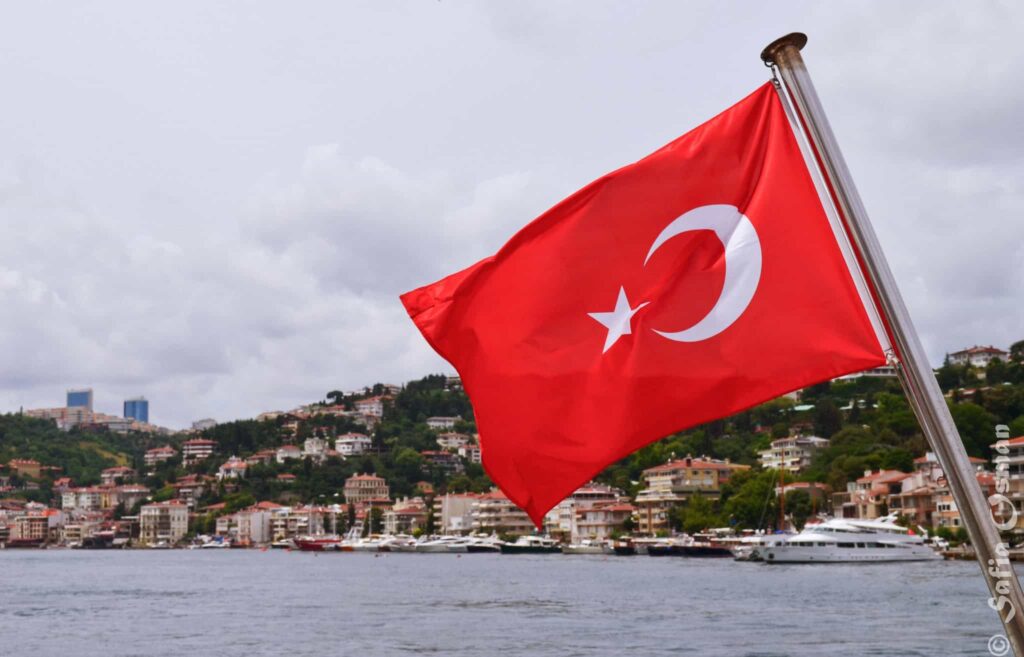The Turkish Ministry of National Education (MEB), through its Directorate General for Lifelong Learning, has. reportedly developed the Turkish Teaching Program for Foreigners (YTÖP) to help international students integrate socially and enhance their academic experience in the country.
The new program has been launched under the framework of the country’s PIKTES project – which was introduced to provide language instruction, and other integration services for Syrian students, many of them refugees, in the Turkish education system.
It has been designed in line with the Common European Framework of Reference for Languages (CEFR) and the Türkiye Century Maarif Model (TYMM) Common Teaching Program Text, according to Turkish news outlet the Daily Sabah.
The teaching program aims to prioritise the “cognitive and sociocultural dimensions” in line with the TYMM’s goal of cultivating “competent and virtuous individuals”, according to media reports.
“By aligning with the Common European Framework of Reference for Languages (CEFR), this model enables a clear and measurable progression in language learning. Such standardization not only facilitates academic success but also provides a transparent benchmark for employers when assessing candidates’ language proficiency,” Subitay Kaan Kaynak, regional manager, EDUKAS, told The PIE News.
Although Türkiye’s major cities such as Istanbul, Ankara, Izmir, Bursa, and Antalya host many international companies, professional life is still conducted almost entirely in Turkish
Ali Can Çirak, Leverage Edu
According to the ministry, the Turkish teaching program will serve as a “guide” for international students in Türkiye at the primary, secondary, and high school levels to learn the language at pre-A1, A1, A2, A2+, and B1 proficiency levels, with age-specific learning goals for the targeted groups of 7-10 and 11-15.
“From being able to meet everyday needs such as shopping, transportation, or dealing with public institutions, to participating comfortably in artistic, cultural, and social events, accessing and understanding local academic resources and publications, and – perhaps most importantly – meeting local people to build social and professional networks, learning Turkish is essential,” stated Ali Can Çirak, regional business development manager, Leverage Edu.
“Although Türkiye’s major cities such as Istanbul, Ankara, Izmir, Bursa, and Antalya host many international companies, professional life is still conducted almost entirely in Turkish. This makes learning the language not only crucial for daily life but also for students to succeed in their studies and to find employment after graduation.”
Turkish language classes have grown in popularity in recent years among international students, particularly from Syria, Yemen, Sudan, Somalia, Iraq, and Palestine – a trend accelerated by the Covid-19 pandemic.
According to Çirak, as the number of international students at all education levels in Türkiye continues to rise, various options beyond YTÖP have emerged to meet their language learning needs.
“One of the most important is TÖMER (Turkish Language Teaching Centre), which operates under many universities and authorised private institutions across various cities. Not only is it one of the best resources for learning Turkish, but the language proficiency certificate awarded by TÖMER is officially recognised by educational institutions throughout Türkiye,” stated Çirak.
Türkiye’s status as one of the world’s largest exporters of TV series has also boosted the language’s popularity, with government officials noting that Turkish shows attract around 800 million viewers at any given time, generating millions of dollars annually.
“Another channel frequently mentioned by international students I’ve met during my sectoral travels – particularly to MENA and CIS countries – and in Turkish universities is Turkish TV series and films. These productions, which have made Türkiye the world’s second-largest exporter of television content after the USA, significantly help students improve their language skills in a practical and engaging way,” stated Çirak.
According to Kaynak, universities can also significantly contribute to integrating Turkish language courses into international students’ academic schedules by implementing a wide range of initiatives.
“To further support international students, universities could integrate intensive Turkish language courses into academic schedules, offer blended learning through online platforms, and develop work-integrated language programs that combine part-time employment with practical language immersion. These measures would enable students to advance their Turkish skills without compromising their academic performance or professional development.”
While over 340,000 international students are believed to be studying in the transcontinental country currently, the goal is to raise the figure by 500,000 by 2028.
Students from Syria, Iraq, Iran, Central Asia, Africa, Russia, the US, and China are increasingly choosing to study in Türkiye, with Turkish Education Federation (TEF) head Mert Şener noting that the country aims to build education partnerships with the US to “establish strong ties not only in the academic field but also culturally”.
Moreover, in recent years, Türkiye has expanded scholarships for international students, particularly from Africa, and waived admission exams for certain courses.
“The key factors driving this increase include the growing number of universities, the expansion of international student quotas, more scholarship opportunities – including the government’s Türkiye Scholarships and high scholarship rates from foundation universities, the availability of many English-taught programs, a wide range of accommodation options, and Türkiye’s strategic location at the crossroads of MENA, CIS, and Europe,” stated Çirak.
Kaynak expanded on these measures, emphasising the breadth of university-funded research, exchange initiatives, and academic courses that are contributing to positioning Turkey as a “global study destination.”
“The designation of additional research universities and the provision of supplementary funding, as seen with Gebze Technical University and Erciyes University, have significantly bolstered research capabilities and global academic impact,” he stated.
“The increased accessibility of the Farabi and Mevlana programs has enhanced student mobility and academic staff exchanges, improving teaching quality and fostering collaborative research. Alongside these, new regulations in fields such as Clinical Psychology, Law, Medicine, Veterinary Science, and Dentistry aim to ensure high professional standards and global competitiveness, strengthening the professional standing of graduates both within Turkey and internationally.”

